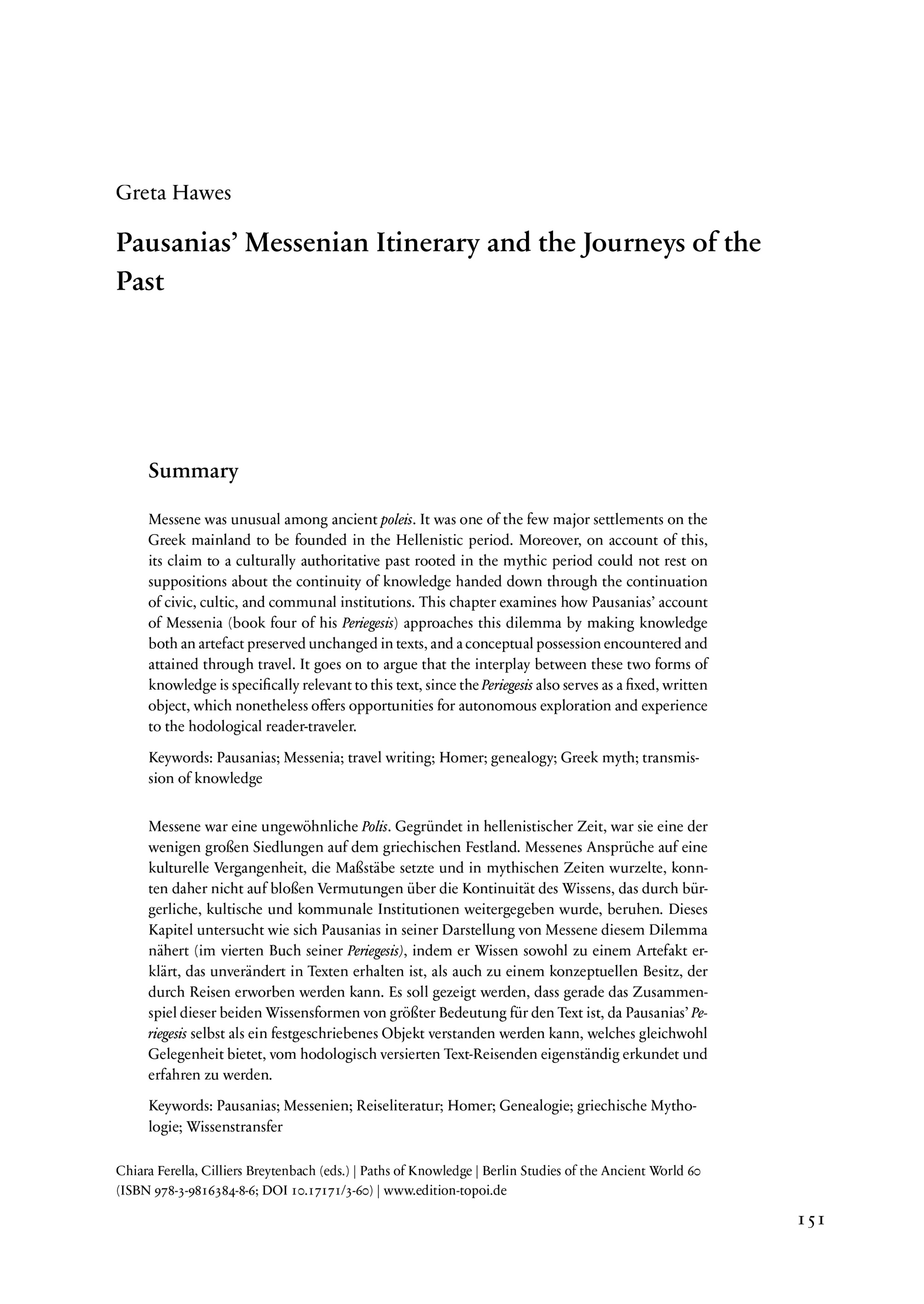Finding Identities on the Way to Rome
The theme of the journey has a primary relevance in the first book of Sidonius Apollinaris’ Letters. It represents not only an opportunity of personal growth, but also a way to rediscover the paths that lead to the very bases of Romanitas. In this sense, the peregrinatio shapes the life of travellers: on the way to Rome Sidonius Apollinaris, born in Lyon, really becomes Roman (Sidon. Epist. 1.5); Eutropius, who decides to remain in Gaul, refuses his cultural identity, turning into a peregrinus in his own land (Sidon. Epist. 1.6).
Das Thema der Reise ist im ersten Buch der Briefe von Sidonius Apollinaris von zentraler Bedeutung. Es zeigt nicht nur eine Möglichkeit des persönlichen Wachstums auf, sondern auch den Weg, der zu den Grundlagen der Romanitas führt. In diesem Sinne gestalte die peregrinatio das Leben der Reisenden: Der in Lyon geborene Sidonius Apollinaris wird auf dem Weg nach Rom wirklich Römer (Sidon. Epist. 1.5); Eutropius hingegen, der beschließt in Gallien zu bleiben, lehnt seine ihm innewohnende kulturelle Identität ab und wird somit zum Ausländer (peregrinus) im eigenen Land (Sidon. Epist. 1.6).

